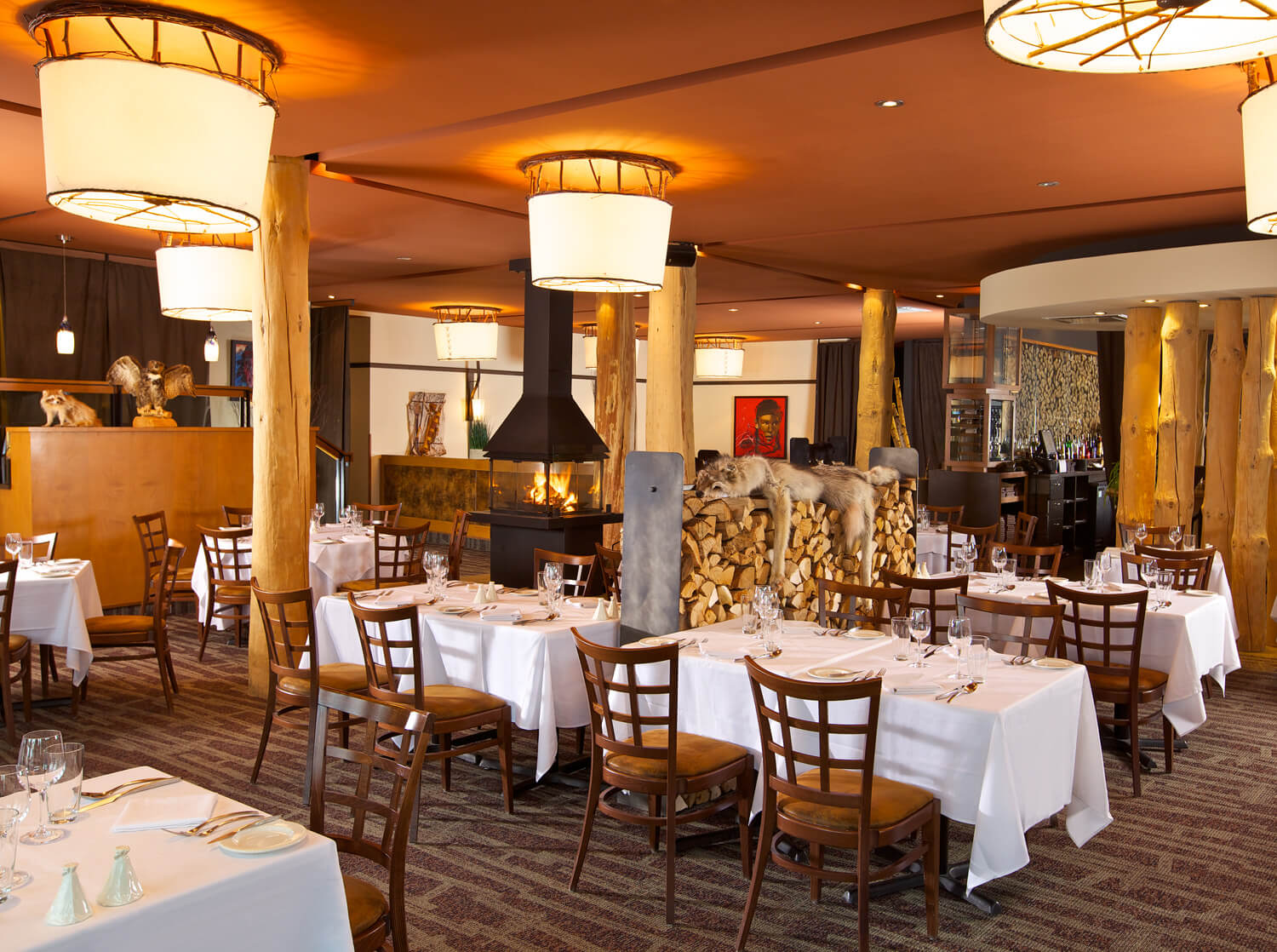Are you familiar with the flavours of Quebec’s traditional and contemporary Indigenous cuisine? Right now, chefs from across all nations are hard at work creating delicious dishes to satisfy the appetite of curious foodies everywhere.
Maxime Lizotte, from the Maliseet nation, heads a pilot project known as Wigwam, a personal chef service that brings Indigenous cuisine into homes across Quebec. But what exactly is Indigenous cuisine? “For me, it’s a type of cuisine that focuses on using what’s at our disposal in a responsible way,” explains Maxime Lizotte, who describes his art as modern Indigenous culinary creations. As an at-home chef, Maxime favours ingredients typically found in his community, such as seafood (fish, algae, urchin), unconventional plants (wild carrots, smoked fir, cattails), and wild aromatics. His 10-course menu (which changes every season) features dishes made using traditional methods such as smoking, combined with more modern methods, such as lacto-fermentation. His goal? To preserve ingredients while they’re at their freshest. And seeing as Maxime uses only local and in-season ingredients, he must constantly think of new and inventive ways to ensure his precious finds make it through the long winter months.
For her part, Norma Condo opened her restaurant Miqmak Catering Indigenous Kitchen in Pierrefonds, located in the western part of Montreal. Her menu includes traditional Indigenous comfort food loved by all (Indigenous and non-Indigenous). “I wasn’t advertising, it was just by word of mouth and people were just reaching out to me!” exclaims Norma. Two of her specialties include a traditional dish known as Trois sœurs, which is a stew made with squash, beans, and corn, as well as salmon cakes, served with algae relish (a recipe from her community). “I don’t use salt or pepper in any of my meals, and no over-the-counter spices. I use a lot of cedar and a lot of sage that I grow myself, and that’s it,” explains Norma.
Indeed, the ingredients used in Indigenous cuisine contain neither salt nor sugar and are harvested from the forest in the most responsible way possible. “I believe it’s important to respect Mother Earth. Indigenous people consider their environment to be precious. For us, it’s spiritual and we need our beliefs to last,” points out Maxime Lizotte, who also issues an important warning: although Boreal forest ingredients are prized, they’re not always harvested with the necessary care. Labrador tea or caribou mousse, for example, need to be gathered with frugality in order to ensure their longevity. “Otherwise the product itself will override the security of the species. What’s more important? When we fail to harvest these products in a sustainable fashion, we’re dipping into the reserves of future generations,” laments the chef.

The success of Indigenous cuisine
In most Indigenous communities, culinary know-how is passed down through generations by word of mouth. For Norma Condo and Maxime Lizotte, knowledge sharing is a core value. The Mi’kmaq chef offers culinary workshops to the uninitiated, while the Maliseet cook chose to become an at-home chef in order to share his expertise with his clients. And both have been extremely successful! In the summer of 2018, Maxime and Norma participated in the culinary event À la rencontre des grands chefs, which took place at Fairmont Le Château Frontenac in Québec City, and which entailed pairing 11 Quebec chefs with 11 chefs from Indigenous nations.
Another promising sign is the recent opening of Sagamité, the second restaurant for the couple Steeve Gros-Louis and Niva Sioui. This new venture, located just steps from the iconic Fairmont Le Château Frontenac, introduces Wendate culture to visitors of the Vieux-Québec region. With a menu focussed on First Nations culture and gastronomy, Sagamité offers refined authenticity in an Indigenous universe right on Saint-Louis Street. A culinary experience that combines tradition and modernity, isn’t that exciting?
Located in Wendake’s Hôtel-Musée Premières Nations, La Traite is a restaurant that celebrates thousand-year-old traditions with a unique menu inspired by the abundance of nature and First Nations culinary culture. Come enjoy wild game meat, fresh-caught fish, and berries and herbs all prepared according to Huron-Wendat traditions. The décor is inviting, featuring a gorgeous fireplace, and the countryside terrace is breathtaking. The perfect combination of nature meets delicious food.






